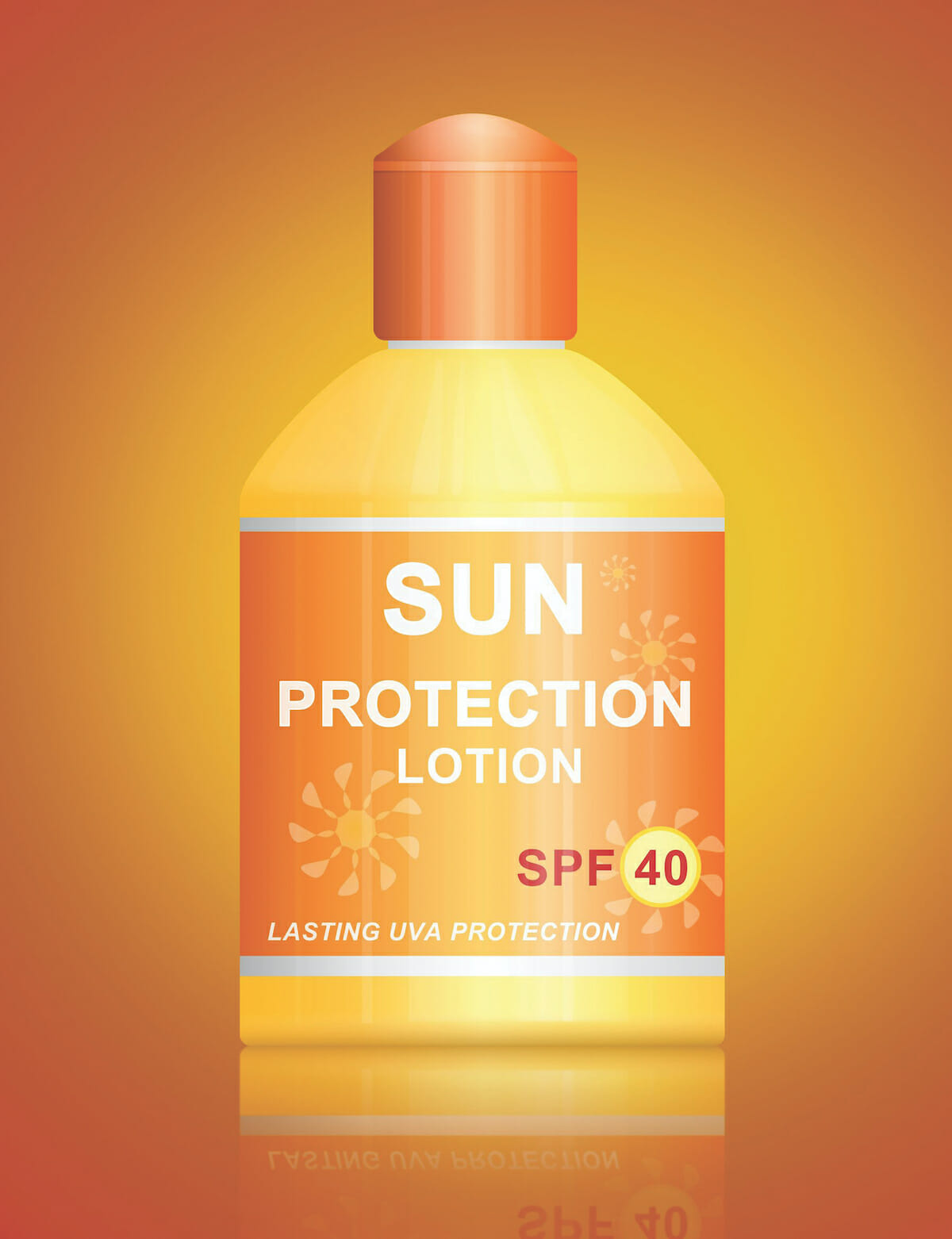Sunscreens expire by their expiration date or at least three years after their date of purchase. This is true even for unopened bottles. People can ensure a bottle lasts by storing it in a cool and dry place.
Sunscreen offers SPF protection against harmful UV A and B rays, which are known to cause:
sunburns
skin damage
early skin aging
sunspots
skin cancer
However, like any other drug, sunscreen expires because the ingredients can “spoil” or separate. This may result in changes to its color, odor, and consistency, making the sunscreen less effective or ineffective.
Sunscreen can lose strength and become unstable over time. Other factors like heat and humidity can also speed up its breakdown.
Correct and liberal sunscreen application can protect the skin from skin damage. A 2020 study found that sunscreens reduce the risk of melanoma, squamous cell cancers, and basal cell carcinoma—the most common type of skin cancer.
Another study from 2020 states that the regular use of sunscreen helps provide photoaging protection.
Aside from using sunscreens, people may also opt for other forms of skin protection, such as wide-brimmed hats, umbrellas, and protective clothing.
How long does sunscreen last?
The Food and Drug Administration (FDA) requires all sunscreens to have expiration dates unless the manufacturer conducts stability tests showing that the product will remain stable for at least three years.
People should treat sunscreen bottles with no expiration date as expired once they have had the bottle for 3 years. It may be a good habit to write the date of purchase on products without expiration dates so a person will know when to throw them out.
A person should not use expired sunscreens or sunscreens purchased 3 or more years ago. There is no assurance that they are still safe and effective in preventing sunburns.
How to know if a sunscreen has expired
The best way to identify if an expired sunscreen is to check the label for an expiration date. Most bottles have it stamped at the bottom of the bottle or its packaging.
It is important to note that the expiration date assumes that people store their sunscreen correctly. People should store their sunscreen in a cool, dark, dry spot. Sunscreens expire more quickly if stored in an unsuitable environment, such as in heat from sunlight.
If the expiry label has worn off or it is impossible to remember the purchase date, a person can look for any changes in its color, texture, consistency, or smell before applying it to the skin.
A watery consistency, separation, lumps or little pebbles, graininess, or grittiness of the sunscreen are telltale signs that it expired.
Risks of using expired sunscreen
An expired sunscreen means that its active ingredients have broken down and are no longer effective at protecting a person against UV rays.
The two types of sunscreen are physical and chemical.
Physical sunscreens — also called mineral sunscreens or sunblock — contain zinc oxide or titanium dioxide. This type of sunscreen may remain stable longer due to its ingredients, but they also degrade over time. A person may have difficulty spreading it evenly on the skin, causing uneven coverage.
Chemical sunscreens contain UVB and UVA blockers. This type of sunscreen undergoes molecular changes when exposed to sunlight and heat. While it may still offer some protection, its SPF rating might not be as high as what is on its label.
Sunscreen is crucial because it reduces the risk of UV rays penetrating the skin. While expired sunscreens may still offer some protection, using them may pose risks to a person, like an increased chance of sunburn.
Without adequate protection, a person is at risk of developing sunburns, most often linked to UVB rays. Exposure to harmful free radicals from UVA rays can also accelerate skin aging. This exposure increases a person’s risk of skin cancer.
How to store sunscreen
Below are some storage tips to keep sunscreens in good condition.
Keep it cool: To keep sunscreen effective for as long as possible, store it in a cool, dark spot. When outdoors, a person can wrap it in a towel or place it in the shade. If outside for a long time, a person can store it in a cooler.
Be hygienic: Frequently opening and closing the lid or using the sunscreen with dirty hands can expose it to bacteria.
Keep it dry: Like heat, moisture creates humidity, which can make it unstable. The moisture can also create an ideal environment for mold growth.
The FDA recommends that people should avoid exposing sunscreen containers to direct sunlight. Heat and sun exposure can cause the active ingredients in the formula to degrade faster, which is why all sunscreen labels must contain the text: “Protect the product in this container from excessive heat and direct sun.”











